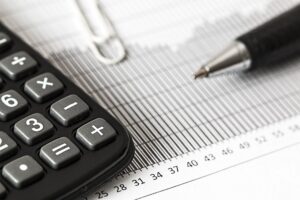Public Servant Tax time
If you’re a Public servant, it pays to learn what you can claim at tax time
Public servants are the people who keep the different levels of government running efficiently for the rest of us, and they include workers in accounting, finance, information technology and logistics management. This category technically also includes professional public servants such as police officers and firefighters. However, these jobs come with their own set of deductions so you should check the relevant checklists for these occupations.
Every public servant in Australia will receive an income statement or payment summary that will outline all of your salary, wages, allowances and bonuses for the financial year.
Can I claim any deductions?
You are allowed to claim deductions on any money you have spent during the financial year on products or services that are directly related to earning your income.
To claim a deduction for workrelated expenses
– you must have spent the money yourself and weren’t reimbursed
– it must be directly related to earning your income
– you must have a record to prove it.
-You can only claim the work-related part of expenses. You can’t claim a deduction for any part of the expense that relates to personal use.
Can
What deductions can I claim?
There is a wide range of deductions you can claim as a public servant, such as:
- A percentage of the running costs of your home office if you are required to work at home; this can include everything from the depreciation of office equipment, to electricity for heating or cooling, plus work-related phone calls and internet access
- Car expenses, provided you’re driving between workplaces for either the same employer (for example, if you’re travelling between offices) or for different employers (if you’re driving from one paying job to another, such as a gig as a musician)
- Buying, hiring, cleaning and repairing of any uniform items or protective clothing that you are required to wear as part of your job (such as a shirt that is branded by a specific local council)
- Any job-specific training or education such as a course on people management if you work in HR, plus any seminars or conferences, and any work-related publications that you need for your job or fees to join a union or professional association.
Cannot
What can’t I claim?
There are several expenses you can’t claim, including:
- Driving to and from work even if it’s a long-distance, or any parking expenses (you can only claim car expenses if you are going between paying jobs)
- Any study or training expenses that are designed to help you retrain for a new career (such as studying a law degree for a new career as a lawyer when you currently work in a finance department)
- The cost of buying any plain and unbranded clothing, even if you purchase it specifically to wear it to work such as a business suit
- The cost of your mortgage or rent, or any additional expenses such as rates or home insurance, if you are working from a home office.

What records do I need to keep?
Record keeping is essential when you’re claiming deductions, and it’s a good idea to create a comfortable and reliable system to help you keep on top of this throughout the year. You don’t need to keep physical receipts, and it’s acceptable to keep a digital copy (such as a photo of a receipt or an email receipt) provided it is possible to read:
- The name of the supplier
- Amount of the expense
- Nature of the goods or services
- Date the expense was paid
- Date of the document
You also don’t need to keep receipts for expenses under $10 (as long as these don’t cumulatively come to more than $200) and for any hard to get receipts, it’s sufficient to make a note of the purchase in your diary of all the above details.
Our expert accounting and taxation teams have all the advice you need.
Our accounting firms team not only identify opportunities that can help streamline your medical practices and businesses but also assist in identifying areas where you can cut costs and save money.
Investing in a professional and licensed accountant for your medical practice is often a critical decision in moving your business forward.
Our experience enables us to deliver expert tax advice, efficiently prepare and lodge your tax returns and focus on achieving the maximum potential tax refunds. In particular, we provided specialist tax and accounting advice on optimum medical practice structure, both for new practice owners and established medical practice clients, to enable them to accumulate wealth in the most protected and tax-effective environment.
Call Us or book an appointment online.
Need more help?

+61 2 8011 4699




